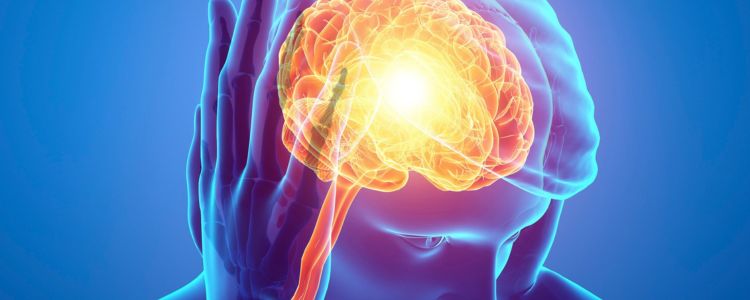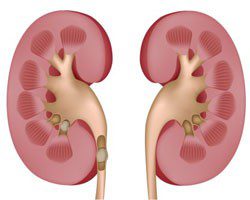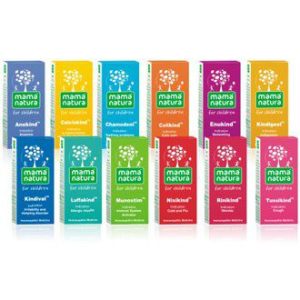
Can Homoeopathy Offer Relief From Insomnia? A Holistic Guide To Restful Sleep
- Dr Jeetesh Singh
- No Comments

Sleep—the silent healer—is slipping through the fingers of millions in India. From the city buzz of Mumbai to the peaceful countryside of Kerala, many are struggling to sleep well at night. If you’ve gone through all the usual steps, like drinking warm milk and meditating, yet are still awake at 3 AM, you’re not alone. Could homoeopathy, a system practised for two centuries, bring a milder approach to sleep recovery? We’ll examine how homoeopathy for insomnia works by utilising ancient insights that suit modern life and explore the underlying factors.
Table of Contents
ToggleInsomnia in India: A Silent Epidemic
India’s insomnia crisis is multifaceted. Urban professionals battle deadlines and screen fatigue, while homemakers juggle caregiving and societal expectations. Even students face unprecedented academic pressure. The result? A nation grappling with:
- Stress-induced sleeplessness: 68% of urban Indians report work-related anxiety disrupting sleep (National Sleep Foundation).
- Circadian disruptions: Excessive screen time and irregular schedules confuse the body’s internal clock.
- Emotional triggers: Loneliness, financial strain, or unresolved grief often manifest as nighttime restlessness.
While short-term fixes like OTC sleep aids exist, they risk dependency and mask deeper imbalances. Homoeopathy for better sleep takes a different route—strengthening the body’s innate ability to self-regulate.
Also Read Sleep Disorder - 5 Ways To Deal with Insomnia
Homoeopathy’s Holistic Lens: Treating the Person, Not the Symptom
Founded in 1796 by Samuel Hahnemann, homoeopathy operates on two pillars:
- “Like Cures Like”: A substance causing symptoms in large doses can, in micro-dilutions, stimulate healing.
- Individualisation: A remedy is chosen based on physical, emotional, and mental nuances, not just “trouble sleeping.”
For instance, two insomniacs may need entirely different remedies:
- Person A: Wide awake post-midnight, mentally replaying conversations.
- Person B: Falls asleep but wakes abruptly at 2 AM with palpitations.
This personalised approach makes homoeopathy for insomnia uniquely adaptable to India’s diverse population.
Kali Phosphoricum: The Biochemic Nerve Tonic
Among homoeopathy’s arsenal, Kalium Phosphoricum (Kali phos) stands out for stress-related sleep issues. Schwabe India’s formulation of this biochemic salt targets modern-day burnout—a key driver of insomnia.
The Science of Kali Phos
1. Neurological Support
Potassium phosphate plays a crucial role in nerve function by facilitating the transmission of electrical signals between neurons. These signals govern everything from muscle contractions to cognitive processes. A deficiency disrupts this communication, leading to a hyperactive nervous system, manifesting as restlessness, irritability, or a “racing mind” that sabotages sleep. Homoeopathic Kali phos replenishes this vital mineral, stabilising nerve activity and calming mental chatter. Addressing the biochemical root of overstimulation helps transition the brain from a state of alertness to one conducive to deep, uninterrupted sleep.
2. Cellular Oxygenation
ATP, the body’s energy currency, relies on potassium phosphate for synthesis during cellular respiration. This process oxygenates cells, converting nutrients into usable energy. Chronic stress depletes ATP reserves, creating a fatigue-anxiety loop: exhaustion heightens stress, which further drains energy, perpetuating sleeplessness. Kali phos supports ATP production, breaking this cycle by revitalising cells and reducing physical fatigue. Enhanced cellular energy helps the body relax, quieting the physiological “background noise” that often keeps sleep at bay.
3. Emotional Resilience
Kali phos is revered in homoeopathy for stabilising emotional turbulence linked to mental exhaustion. It aids in regulating stress hormones, such as cortisol, and supports neurotransmitter balance, which governs mood and emotional well-being. Overburdened individuals—caregivers, professionals, or students—often experience a form of mental burnout that disrupts their sleep. By nourishing the nervous system, Kali phos fosters emotional equilibrium, softening the grip of worry or overwhelm. This creates a mental environment where calm replaces chaos, paving the way for restorative sleep without emotional interference.
How It Fits Into Modern Life
Imagine a software developer in Bengaluru working late shifts. Chronic stress depletes their potassium phosphate reserves, leading to fragmented sleep. Homoeopathic Kali phos acts as a biochemical reset, easing the transition into deep sleep without sedation.
Building a Sleep Sanctuary: Homoeopathy Meets Lifestyle
Natural sleep remedies yield the best results when paired with intentional habits. Consider this India-friendly routine:
| Daytime Habits | Nighttime Rituals |
| 20-minute morning walk in sunlight | Swap screens for calming music |
| Include magnesium-rich foods (spinach, almonds) | Sip tulsi or ajwain tea |
| Practice office desk yoga stretches | Use a lavender oil diffuser |
The Ayurvedic Connection
Many Indians unknowingly blend homoeopathy with Ayurveda. For example:
- Abhyanga (oil massage): Boosts circulation, preparing the body for rest and relaxation.
- Nasya (nasal drops): Clears breathing channels for uninterrupted sleep.
Also Read Everything You Need to Know About Insomnia – Causes, and Treatments
Why Schwabe India’s Kali Phosphoricum Stands Apart?
With a legacy dating back to 1866, Schwabe India pioneers homoeopathic innovation while honouring tradition. Their Kali Phosphoricum is prepared under strict Homoeopathic Pharmacopoeia of India (HPI) guidelines, ensuring:
- Standardised Dilutions: Precise 6X or 30X potencies for consistent results.
- Quality Raw Materials: Sustainably sourced potassium phosphate.
- Non-Habit-Forming: Zero risk of dependency, unlike synthetic sedatives.
Navigating Myths: Your Homoeopathy Questions Answered
1. “Can homoeopathy work alongside my diabetes/thyroid medication?”
Absolutely. Homoeopathy complements conventional treatments. Always inform your homoeopath about ongoing medications.
2. “Is it safe for elderly parents with dementia-related sleep issues?”
Yes. Remedies like Kali phos are gentle enough for seniors, addressing agitation without side effects.
3. “How is homoeopathy different from Ayurvedic sleep tablets?”
While Ayurveda utilises herbal blends (e.g., ashwagandha), homoeopathy employs micro-diluted minerals and plant extracts. Both are natural but operate differently.
A Stepwise Approach to Better Sleep
- Consult a Homoeopath: Share your sleep patterns, stressors, and health history.
- Integrate Kali Phos: Use Schwabe’s remedy as directed—typically 2-3 pellets before bed.
- Track Progress: Maintain a sleep journal for 4 weeks to identify trends.
Final Thoughts: Relearning the Art of Rest
In a culture that glorifies “hustle,” prioritising sleep can feel radical. Yet, it’s the foundation of productivity, immunity, and joy. Homoeopathy for insomnia isn’t a magic wand—it’s a partnership between your body’s wisdom and time-tested remedies.
As you explore Schwabe’s Kali Phosphoricum, remember: Healing is a journey, not a race. Here’s to quieter nights and brighter mornings.





























